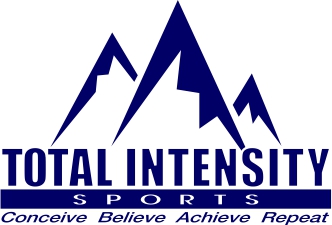
Twelve Critical Steps to Prepare for Your First Ironman – Part Two
This is the second of two posts, which features the second six of my twelve critical steps of Ironman preparation!
An Ironman is not something to take lightly. Even for an experienced triathlete, there are a LOT of things about Ironman that you just don’t know that you don’t know. The following is a checklist of sorts. A checklist which, if you thoroughly complete each item, will take you from wherever you are currently at to the finish line of an Ironman.
#7 Bridging the Gap – Including Brick Sessions – Long Bricks / Bike Bricks / Run Bricks
While 70.3’s are a challenge, a full Ironman is a whole different beast. It’s not just more challenging in terms of distance. What becomes dramatically more important is your nutrition and hydration plan (more below). Without a plan that will work for you in hour 10, 11, 12 and beyond, the marathon will be more like a march of death rather than the cherry on top of a memorable day. But, without testing the plan with a long day lasting more than 70.3 miles, the less assurance you will have that it will work. Having a couple of endurance bricks, say a 70-mile bike and a 15-mile run, or an 80-mile ride and 16-18 mile run, will start to give you a real taste of what Ironman race day will be like. More importantly, if you finish them with no stomach or dehydration issues, and a feeling that you still have more left in your legs to continue running without crashing and burning, then you know you are on the right track.
#8 Long Open Water Swims – Build confidence with swims beyond race distance. Don’t wait.
While running will definitely take a lot out of your legs, and biking is a lot less impact, you can do a lot more swimming without fear of breaking your body down. Swimming can be a big concern for a lot of people – fear of swimming in packs, a lack of ability and confidence, and a general fear of open water or ocean swims. The first key to overcoming these things is to lean on your coach (go back to #1) and get some quality swim instruction. This needs to start as soon as possible. Further down the road, when you are a competent swimming and the weather permits, get out in the open water. Build your swim yardage up and get in the habit of weekly endurance swims. As you get closer to race day, get beyond the race distance. Go 1.5 miles if you’re prepping for a 70.3, and build up to even 3 miles for an Ironman. Once you get to these distances, you will enter the water on race day with confidence that you’ve got the swim distance, no problem.

#9 Race Day Pacing: Stay comfortable, if not easy. Swim Easy. Bike Easy. Run Steady
Unless you’re an elite athlete or top level age-grouper, you’re not going to be in a position to “race” for 5-7 hours in a 70.3, much less a 12+ hour Ironman. These are endurance events, with an emphasis on “endurance”. So, with that said, keep the same pace (NOT faster) that you normally completed your long rides and runs at. Why on earth, after doing most of your long bike rides at 17 mph, would you be suddenly able to ride one or two miles per hour faster on race day? Or be able to run sub 9-minute miles when all of your training runs were slightly above 10 min/mile? When you see someone go by you who, by your estimation, has no business going faster than you are going, you have to let them go. Let them do their thing while you do yours.
The goal, whether you are a pro or in the back of the pack, is to get to the finish line. Stay comfortable, if not easy, as much as you possibly can. Enjoy the day. Soak in the atmosphere and the crowds. Like Ferris said, “Life moves pretty fast. If you don’t stop and look around once in a while, you could miss it.”
#10 Nutrition: Fueling and Hydration: The Fourth Sport.
I cannot possibly understate how important your race-day (and training) fueling and hydration is. When the top pros have issues with their nutrition, they become mortal. They walk. They suffer. Sometimes they even DNF. Nutrition is different for everyone. Let me say that again. Nutrition is different for everyone. Factors include your weight, body composition, taste buds, ability to handle heat, sweat rate, ability to digest certain foods, and the list goes on. Since everyone is different, each of us needs to figure this out. This is another key area for your coach to help you out and work through the things you experience in training.
While everyone is different, there are a couple of things which applies to pretty much everyone.
- Timing is everything – eat smaller portions more frequently. Divide your hourly caloric target by four and take in that amount every 15 minutes.
- Drink often, drink early – drink from the get-go and follow a similar approach as calories. If you’re drinking a bottle of fluids every hour, you should be 1/3 of the way done after 20 minutes and 2/3 done after 40 minutes.
- Don’t fall behind! When you make the mistake of not taking in enough calories or fluids, it becomes very difficult to dig your way out of the hole.
- Water is NOT just for hydration – it’s a key ingredient in the digestive process.
- Electrolytes – these need to be replaced… even more so if you are a heavy sweater!
#11 Race Day: Executing Your Plan
Simply put, whatever was working the best for you in training should be the foundation for your race day plan. The paces that you kept on your long swim/bike/runs should be what you target on race day (or maybe a little easier). The foods and fluids that you ate and drank in training should be what you use on race day. Stick to all of the things which worked best for you in training.

#12 Ironman Wisdom
Respect the distance. This is not an easy feat, so give yourself plenty of time to prepare for it – physically and mentally. Regardless of the hurdles you face along the way, don’t ever stop believing in yourself and your ability to complete any race distance.
There was an athlete I coached many years ago named Jack Corry. Jack came to me after he started his journey from being an overweight couch potato to his dream of completing the Ironman. We worked together for over a year, and in his first attempt, completed Ironman Coeur d’Alene. Jack was very humble and didn’t want to accept all of the accolades that came with becoming an Ironman.
After the race, Jack and I talked. He mentioned how everyone at his work was making such a big deal out of the Ironman. I told him that I knew he was humble, but at the same time, he did something not many people can do – get off the couch, lose a lot of weight, and complete an Ironman. While Jack was proud of himself for achieving what he set out to accomplish, I will never forget his response. He simply said, “There are only two things you need to have in order to complete an Ironman. One, you can’t have any major physical or health issues – those can stop you, of course. But the only other thing you need is the desire and self-motivation to do it. If you have that, you can do anything.”
I have to say, Jack was right. Whatever goal you set for yourself, Ironman included, can be attained if you have the desire and motivation to get the preparation done and then put it all together on race day. Conceive of your goal. Believe that you can do it. Achieve it with hard work, consistency and determination. Then, repeat the process!









